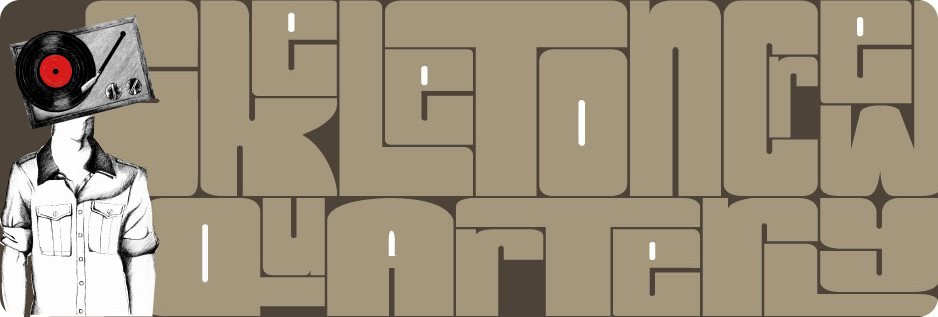
Saturdays = Youth
M83
Mute Records.
SCQ Rating: 77%
What the hell did John Hughes really do? Sure, the man directed Sixteen Candles and The Breakfast Club -two movies that explored adolescent confusion and high school politics in the 80s – but what made those movies so memorable (nostalgia for the 90s and apparent inspiration for the late 00s) had less to do with the filmmaking and everything to do with the bond between music and youth. Let’s not forget that the early 80s delivered the MTV Generation; innovative music videos and a new cultural movement that gave young adults the opportunity to feel closer to the music through wardrobe, opinion and attitude. How much Hughes had to do with his soundtracks, I’m unaware, but that is why people like Anthony Gonzales of M83 still site his films as inspirational; they are part of a zeitgeist that feels untouchable now, regardless of how many people try to revive its trademarks.
And try they have. Nearly five years after bands like The Rapture and The Killers came to embody what critics imagined to be the height of retro’s influence, M83 return with Saturdays=Youth, a record openly dedicated to everything 80s culture aspired to. If you’re anything like me – an ardent M83 fan or someone who dislikes mainstream 80s culture - that last sentence is rife with insecurities. To be as direct as possible and cut to the chase, Saturdays=Youth is hit-and-miss; a record that thrives off its muse as often as being buried by it.
‘You, Appearing’ is among the best ambassadors for the former, a piano-led slowburner that carries such emotional weight, it’s nearly a burden to love. Not only is it light-years beyond anything off Digital Shades Vol.1, it’s also the first of many new M83 classics: particularly ‘Kim & Jessie’, which encapsulates the sound of 80s melancholy like no other. When at its best, Saturdays=Youth balances its Goth-tinged moodiness with the cinematic arrangements that M83 are renowned for, and in those moments (like the luxurious ‘Couleurs’), we can hear how Gonzales has finessed his songcraft. Where Before the Dawn Heals Us was a cacophony of explosive synth and guitar attacks, the new M83 is refined to a more aerodynamic sound, choosing atmosphere over abrupt shifts in dynamics.
If only Gonzales was able to refine some of his excessive tendencies that, despite feeling appropriate to what we recall as the most excessive of decades, are guilty of inflating this record beyond small feats it possesses. The majority of these songs, even the highlights, are each about a minute longer than they should be; a mere sixty seconds that manages to diminish the impact and excitement of the record. In the most obnoxious example, ‘Midnight Souls Still Remain’ is a hollow repetition of two notes that travels eleven minutes without so much as a subtle shift. That this would’ve been unwelcome on Gonzales’ largely ignorable Digital Shades ambient record should indicate how unwanted it is here, and it’s sadly one of several stalemate tracks that fail to evolve beyond their glossy impression.
As we’ve come to expect from M83 (without Fromeageau, anyway, who left after 2003’s Dead Cities, Red Seas, Lost Ghosts), there is some undeniable cheese on display, mostly in Gonzales’ love of over-the-top drama. Amid the Cure-borrowed guitar licks of ‘Graveyard Girl’, we’re confronted with a young female who, after professing her love to gravestones, spouts “I’m fifteen years old, and I feel it’s already too late to live. Don’t you?”. I know that’s expected to be a rhetorical question but I can’t play along. For an artist who gives new meaning to the term ‘cinematic’, it’s troubling that Gonzales has chosen to contextualize his work to such narrow confines. Maybe I prefer the comfort and self-assuredness of being in my mid-twenties over those confused but swell-at-the-time teenage years. Or maybe I was too young to appreciate the technicolor glow of 80s culture; after all, I was only two years old when Sixteen Candles came out. My point is, so was Gonzales.


















